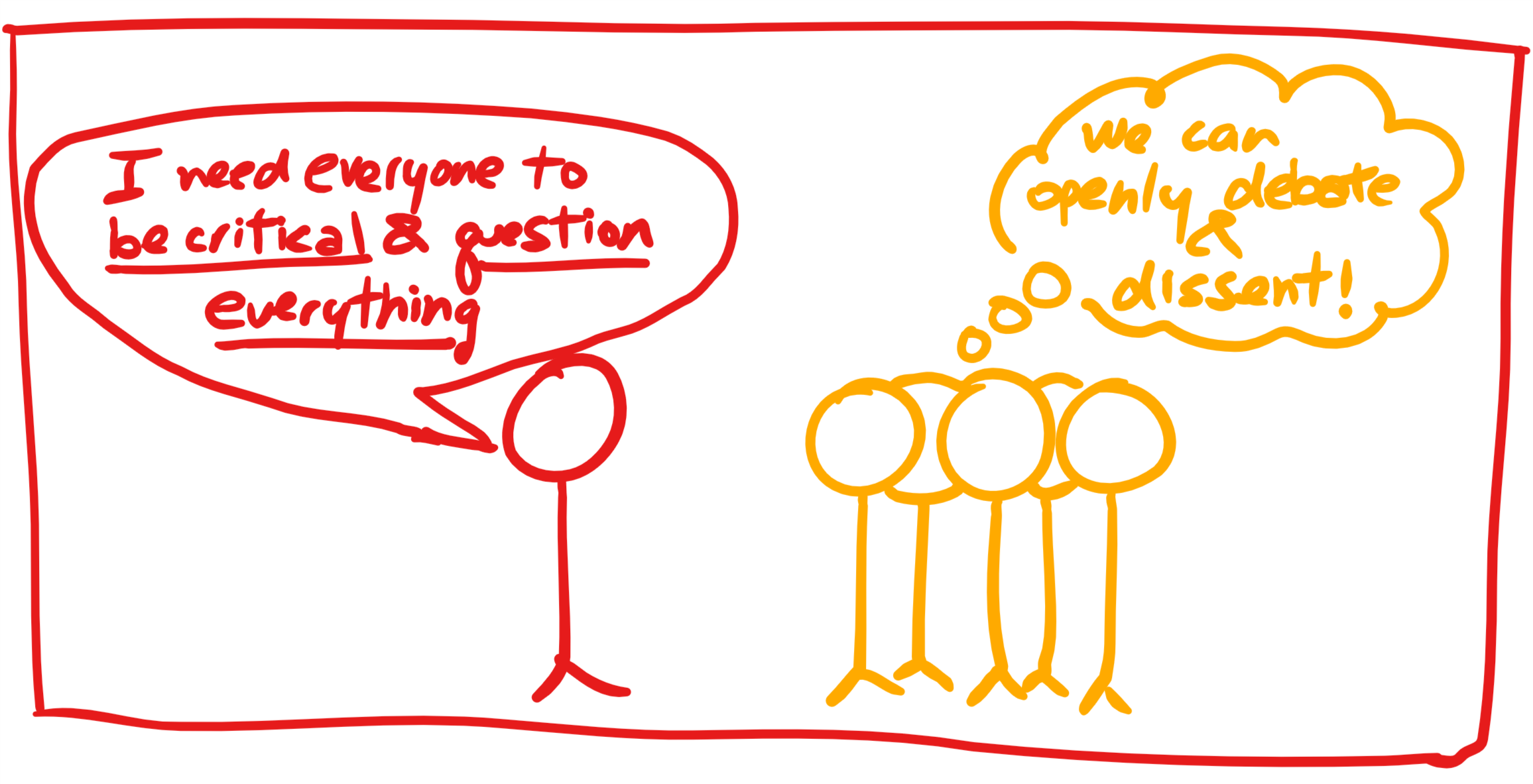A friend relayed to me a personal experience that perfectly illustrates what a leader should not do when leading a team meeting.
The meeting itself was called to introduce some new concepts being rolled out to a multi-disciplinary team. The meeting leader started the session by encouraging the group to "stay positive" throughout the presentation, then he passed the mic to the primary presenter of the information. By the end of the presentation, my friend and her colleagues just sat dumbfounded, too timid to ask questions or challenge the ideas that were just presented.
When I asked her why she didn't ask more questions or offer a dissenting opinion, she said she was asked to "stay positive", and felt it wasn't the right forum to debate or dissent even though she disagreed with what was being presented.
My jaw fell to the floor. The leader had successfully committed an incredibly fatal mistake and turned an opportunity to hear feedback and opinion into a soul-sucking indoctrination session. By telling his team to "stay positive", he ended up holding an information session rather than a meeting with fellow colleagues.
"Staying positive" doesn't encourage a genuine debate. "Staying positive" doesn't encourage dissent. "Staying positive" doesn't get us open and honest feedback. What "staying positive" gets us is a room full of nodding heads, and we have no idea whether or not those nods indicate agreement. By asking the group to "stay positive", he might as well have asked his team to shut up, sit down, and take everything at face value. Any leader who asks his team to "stay positive" at a start of a meeting is acting from a place of fear. Fearful that dissent may detract from the agenda. Fearful that others may have better solutions. Fearful that they may not be the smartest person in the room.
Those fears hold back teams from accomplishing great things.
I set only two baseline rules to meetings: Say all you want to say, and never leave the room unsatisfied. Neither of those would be accomplished if we started off our meetings by indicating that only one emotion, positivity, is acceptable. Team members that trust each other have implicit permission to be open and honest, knowing that a variety of emotions and opinions will improve solution outcomes. However, for teams that don't meet very often, it's important that team members are given explicit permission to communicate, collaborate, debate, and dissent.
How do we do that? It's not enough to simply tell people to ask questions and speak their minds. Before we start a meeting, set some ground rules to explicitly give the team permission to participate:
- It's okay to debate ideas and have dissenting opinions
- It's okay to be critical and question everything
- It's okay to get heated about what we are passionate about
- It's okay to if we have fundamental differences of opinion
Once the ground rules are set, it becomes natural for the team to say all they want to say. When a decision is made, everyone is more inclined to buy in because their voices are heard.
Don't be a fearful leader. Embrace debate and dissent. If your team is new, make sure you set the ground rules to give them permission to participate. Your reward for doing so is so much greater than a roomful of nodding heads.



